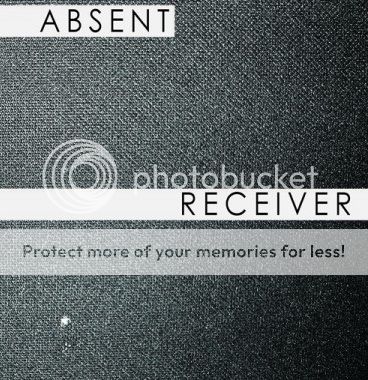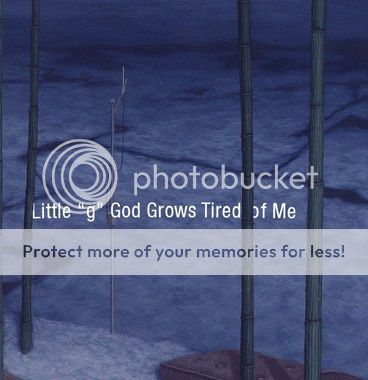This article originally appeared as a post titled "2013 Springgun Press Releases" at Vouched Books on 31 May 2013.
Last year, Springgun Press released its first offering of full-length collections: Lily Ladewig’s The Silhouettes, Adam Peterson’s The Flasher, and The Container Store, which is a collaborative text written by Joe Hall and Chad Hardy. For their second round of full-lengths, Springgun published three more solid collections: James Belflower’s The Posture of Contour: A Public Primier, Michael Flatt’s Absent Receiver, and Aby Kaupang’s Little “g” God Grows Tired of Me.
A conversation with Belflower discussing his Posture will appear on this site in the coming weeks; so I will focus my attention on the other two collections.
Flatt’s Absent Receiver opens, literally, with a microphone check: “check // check // check // check” (1); then proceeds to explore sound as both an object of study and as a form of study. Take, for instance, the following passage:
To this extent, then, Absent Receiver looks to travel “deep in the sound” of poetry in order to “deepen / the sound” (69) of the poems. In doing so, “the page” becomes “an amplifier” (47) through which Flatt sounds his songs; and the sounds, it would seem, are emotive:
The proliferation of bodies, then, disassociates corporeal selves from the concept of identity and, more specifically, the pronoun “I.” As such, “I is useless in the dung / of words that name” (57), because “a name means nothing,” whether it be “I,” another pronoun, or a proper noun. But Little “g” God Grows Tired of Me is not a lament for a lost sense of self. Instead, the collection offers us an “exchange”: in place of a determinate “I” residing in a particular corporeal body, “I inhabit[s] innumerable houses // your “body / in jeopardy” (73). By placing the body and the self in jeopardy, though, we attain a fluidity heretofore unattained.
Last year, Springgun Press released its first offering of full-length collections: Lily Ladewig’s The Silhouettes, Adam Peterson’s The Flasher, and The Container Store, which is a collaborative text written by Joe Hall and Chad Hardy. For their second round of full-lengths, Springgun published three more solid collections: James Belflower’s The Posture of Contour: A Public Primier, Michael Flatt’s Absent Receiver, and Aby Kaupang’s Little “g” God Grows Tired of Me.
 |
 |
Flatt’s Absent Receiver opens, literally, with a microphone check: “check // check // check // check” (1); then proceeds to explore sound as both an object of study and as a form of study. Take, for instance, the following passage:
through the narcissism of reverbThe excerpt begins with a meditation on the nature of reverb, and its ability transform “small” sounds into bigger ones. But there is more than meditation here; the form itself also contains a music in the hard rhyme of “night” and “light,” as well as the consonance of “create” and “cavern.” The reverb(eration) of phonemes in rhyme and alliteration, it would appear, propel the poem forward with their sonic thrums.
we expect big things from small ones.
the propeller thrums the night
and electric light
brings blackground into relief.
in this space my open mouth
does not create a cavern. (32)
To this extent, then, Absent Receiver looks to travel “deep in the sound” of poetry in order to “deepen / the sound” (69) of the poems. In doing so, “the page” becomes “an amplifier” (47) through which Flatt sounds his songs; and the sounds, it would seem, are emotive:
While Flatt’s preoccupations deal primarily with sound, Kaupang’s, Little “g” God Grows Tired of Me focuses mainly on the body and its various permutations. Take, for instance, the following segments from the poem “Scenic Fences”:the inside of a poem
isn’t anything
anyone needs to be shown.
the illiterate already know it
as the space between the
heartbeat and the heart. (46)
the body {that other body youOver the course of these three passages, one body “refuses to wake,” calling into question our agency over the very thing we think we control; and “writes grieve,” thus undermining normative conceptions of Cartesian dualism, wherein the ability to write, think, or communicate resides, first and foremost, in the mind. Likewise, the body is a space to which we can return, we can lose or leave, or, like a house, be demolished. Kaupang’s collection contains a plethora of bodies that function in many different ways. Yes, this is the multiplicity of the body.
respond to—the one you reap}
refuses to wake
writes grieve
in the rainbed the basalt the mobile
choking over the baby’s crib (30)
…
return the body {the one you
resound to} lose it once
and leave
be sad at the demolition of house (37)
…
ménage-a-toi
the bodies beside
the body {you
sometimes} and lying
there and trying
accidentally appear too
misaddress invitations for
other men’s pockets (43)
The proliferation of bodies, then, disassociates corporeal selves from the concept of identity and, more specifically, the pronoun “I.” As such, “I is useless in the dung / of words that name” (57), because “a name means nothing,” whether it be “I,” another pronoun, or a proper noun. But Little “g” God Grows Tired of Me is not a lament for a lost sense of self. Instead, the collection offers us an “exchange”: in place of a determinate “I” residing in a particular corporeal body, “I inhabit[s] innumerable houses // your “body / in jeopardy” (73). By placing the body and the self in jeopardy, though, we attain a fluidity heretofore unattained.

No comments:
Post a Comment